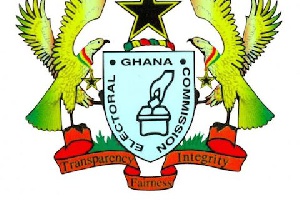Barring any hitch, the Electoral Commission (EC) is ready to conduct the District Level and Unit Committee Elections on March 3, Hajia Saadatu Maida, EC Member responsible for the Upper West Region has said.
She said unlike the previous elections, where polling stations were provided with one verification machine, this time, two verification machines would be supplied to all the 6,156 polling stations to take care of any eventuality.
Hajia Maida, made this known at a capacity building workshop for the media on election reporting in Wa, aimed to improve the quality of information about the electoral process.
The Commission Member warned that the district level election is non-partisan and candidates could not use the name of party, motto or symbol of a political party.
She explained that a candidate who contravenes the law would have his or nomination cancelled while political parties are debarred from endorsing and sponsoring a candidate and canvassing for votes for anyone, as well as campaigning for or against any aspirant.
“Any political party that contravenes these rules is liable on conviction to pay a fine not exceeding five million- cedi,” she said.
Hajia Maida said before the coming into force of the district assembly elections, (amendment) Act 2010 (act 801) candidates could not mount their own platforms.
She however said, with the amendment of Act 473 and the coming into force of Act 801 in 2010, candidates are now able to do so but no party could mount a platform for any or all the aspirants.
She added that no organisation, group of persons or individuals could mount a platform for the use of a candidate or all the candidates.
“An organisation, which is desirous of supporting platform mounting, may place the resources at the disposal of the Commission to mount a platform for the common use of all the candidates.”
She said any party, group or individual who mounts a platform without recourse to the Commission infringes the law and would be liable upon conviction to pay a fine not exceeding 250 penalty units.
On withdrawal of candidature, Hajia Maida said a candidate may at any time before the Election Day withdraw his or her candidature and only an applicant could do so.
Hajia Maida said withdrawal of candidature should be in writing addressed to the Commission, and if the withdrawal occurred after printing of the ballot papers, the name and particulars of the candidate would continue to remain on ballot paper but any votes cast in his or her favour would not be counted.
Mr Chris Alalbila, a former Journalist with Ghana Broadcasting Corporation, who served as a resource person, said the media have a significant role to play to contribute to the success of an election and asked that equal attention should be given to the forthcoming district assembly election.
He noted that elsewhere on the African continent, the media had contributed to electoral and political violence and some states have collapsed through negative influence of politicians, hence the need for the Ghanaian media to help inform and educate the electorate, as well as carry out their watchdog and monitoring functions which contribute to credible elections.
Mr Alalbila appealed to the media not to be complacent, saying: “For some time now discussions on our airwaves’ and screaming banner headlines in the print media have been characterised by accusations and insults from the major political parties.”
He cautioned that freedom of expression is not absolute power as it is subject to other laws that seek to safeguard national security, public safety and morality.
He said the airwaves are part of public property and must be used responsibly and judiciously in the public interest.
Mr Serebour Quaicoe, Regional Director of the EC, urged media practitioners to seek information from authentic sources from the commission before going ahead to disseminate them to the public.
He said election reports are very sensitive to the people and have the potential of influencing them to act negatively and as such, care should be taken not to churn out wrong information to the public.
The media practitioners were taken through media contribution to election success and electoral laws regulation the conduct of district level elections among others.
The United States Agency for International Development sponsored the workshop.
Politics of Thursday, 22 January 2015
Source: GNA

















